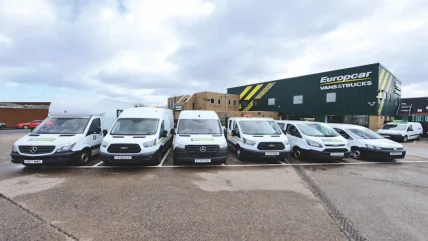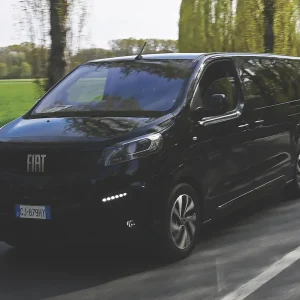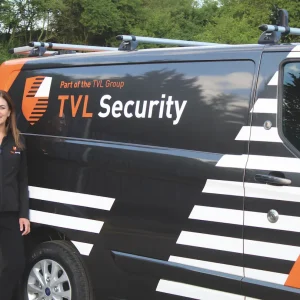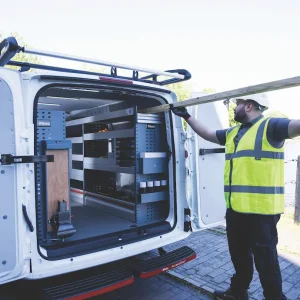
The days when rental fleets could demand fat discounts from van makers in exchange for big orders are fast disappearing; at least for now.
Constraints on production as a consequence of component shortages mean that manufacturers have no option but to try to maximise profits on the reduced number of light commercials trickling out of their factories. That could mean targeting small- to medium-size businesses directly; and pushing discount-hungry hire fleets whose volume requirements they cannot satisfy to the back of the queue.
High-profile rental specialist Europcar Mobility Group recently had a confirmed order for 580 light commercials it placed with a well-known manufacturer cancelled says commercial director, Clive Forsythe. “And I mean cancelled – not postponed or rescheduled,” he states.
He is certain that the brand concerned had concluded that it could get a better price for its products elsewhere. “We command some pretty deep discounts because we are volume buyers,” says Forsythe.
As a consequence Europcar will have no option but to pay more for the vans it needs in future; or at least until van assembly plants are working at maximum capacity again. Rental rates look likely to increase during the coming months as a result as agreements with corporate clients are renewed.
“At present it’s hard to say by how much, but we could be looking at up to 10%,” he observes.
That will come as unwelcome – though perhaps not surprising – news to its business clients as they battle to recover from the impact of the Covid-19 pandemic. Over 95% of Europcar’s van hire revenue comes from corporate customers rather than private individuals who need a 3.5-tonner for a do-it-yourself house move.
Accepting the need to live with reduced discounts should hopefully mean no more orders are cancelled. Like other firms though, Europcar will still have to wait for vehicles to be delivered; and lead times are stretching well into next year.
“We’re desperate for supply,” Forsythe admits.
Says Enterprise Flex-E-Rent managing director, Danny Glynn: “Demand is high for rental vehicles, but like everybody else we’ve got supply challenges.
“We’re confident that the orders we’ve placed with manufacturers will be fulfilled,” he continues. “However it looks as though some of the vans we expected to be delivered by the end of this year won’t arrive until the end of the first quarter of 2022, and possibly not until next April.”
Supply constraints mean Europcar is having to spread its net wider, and talk to manufacturers other than Ford, Vauxhall, Citroen, VW and Mercedes-Benz. Names mentioned by Forsythe include LDV (Maxus).
With a light commercial fleet 10,000 strong, Europcar still has plenty of vehicles available for hire, Forsythe stresses. Models such as Volkswagen’s Caddy, Ford’s Transit Custom and Mercedes-Benz’s Sprinter remain readily available, as a trawl through the company’s network of local branches quickly reveals.
One consequence of long lead times though could be that Europcar has no choice but to rent out older vans then it usually does while it waits for their replacements to appear.
With 60,000 vans on its books, Enterprise Flex-E-Rent is having to ponder the implications of running older vehicles too; especially the risk of increased downtime because they need to spend longer in the workshop. “We’ve not been impacted that significantly as yet though, and the average age of our fleet is still only around 12 to 24 months,” says Glynn.
Like the rental fleets, leasing companies are being hit by supply constraints, with users understandably reluctant to return their existing vehicles until their replacements arrive.
Arval UK head of consultancy, Shaun Sadlier says: “Leases are being extended where this is the best solution for the customer, and we’re working hard to source suitable vans as quickly as possible. Using our mid-term rental fleet we’re also able to provide flexible shorter-term solutions for customers who need access to a van while their order is manufactured.”
Europcar’s need for vehicles comes at a time when its van rental activities are booming.
“We did more business in 2020 than we did in 2019, despite the pandemic, and we’re doing well this year too.” says Forsythe. “Demand is very strong.”
He suspects that many companies that had acquired vans on four- to five-year leases only to have them stand idle during the Covid-19 crisis are coming to the conclusion that a flexible rental agreement might make better sense for them. Rent a van rather than lease it and you can send it back to the hire company if you no longer need it, he points out; and without facing the sort of penalties that are associated with early lease termination.
Admittedly there is a price to pay for this flexibility but it is not that onerous, Forsythe contends. “With long-term rental you’re talking about a premium of from 5% to 10% over the leasing rate,” he observes.
Not that he is necessarily opposed to leasing. While its role may be being eroded as more companies favour long-term rental it still has its place, he believes, but only as one of a number of different methods of acquisition.
In his personal opinion an ideal fleet mix could be 60% lease, 30% long-term rental, and 10% spot-hire. Should there be a downturn the spot-hire vans can be returned to the rental fleet quickly without penalty, followed by the long-term rental vehicles if the downturn persists and possibly worsens.
Break clauses can of course be built into leasing agreements to make them more flexible. “But they are scheduled events – after two years, say – which doesn’t help if you need to return your vehicles after 12 or 18 months,” he comments.
Lessors increasingly appreciate the need to be flexible, Arval’s Sadlier insists. “It is no longer the case that one size fits all, and from discussions with our customers we understand that they are increasingly looking for a mix of leasing solutions.
“One thing we’ve done is increase the availability of vehicles within our short- and mid-term light commercial rental fleet to meet the demand for shorter rental periods. That includes placing increasing numbers of electric vans on our mid-term rental fleet.”
Sadlier makes the point that some types of light commercial do not readily lend themselves to rental.
“Many of our customers are carrying out conversions to their vans, some of which are very complex,” he observes. “For them, a long-term lease is more cost-effective.”
One advantage of rental is that it allows firms to try out an electric van for several months to see if it suits their pattern of work without having to make a longer-term commitment. Says Glynn: “We’ve got Mercedes-Benz eVitos on our fleet and we’re acquiring some electric Sprinters too.”
At under 100 the number of battery-driven light commercials on Europcar’s fleet is admittedly modest at present, but is increasing. Forsythe and his colleagues are encouraging clients who may be suffering from range anxiety to try out hybrid vans as a half-way house between diesel and electric.
“Opting for them means you’ll always have sufficient range if you need it in an emergency,” he points out.
Leasing usually means what is known as an operating lease; sometimes referred to as contract hire. Like short- and long-term rental, it allows the customer the use of an asset, but not its ownership.
So does another option which has recently appeared; a van subscription service marketed under the Myvandirect banner. It works on the same basis as sister brand Mycardirect, which was launched last year.
You choose the van you need online, with the monthly rate you pay determined by how long you intend to use it and how many miles you intend to cover. Having made your selection you sign up with Myvandirect, pay a once-and-for-all upfront subscription of £250, upload the necessary documents, confirm a delivery date and the vehicle is delivered to your premises free-of-charge.
The agreement can run for up to 24 months.
If during that time you need to swap to a bigger or smaller van in line with the changing needs of your business than you can do so without paying a penalty. Your existing vehicle is replaced and the rate you pay is altered accordingly.
The monthly rate covers maintenance, replacement tyres, breakdown cover, MoT testing if applicable and Vehicle Excise Duty. Accidental damage is not covered.
“You can change your van three or four times if you need to,” says Mycardirect chief executive officer, Duncan Chumley.
The subscription makes you a member for life and covers all the vehicles your firm may need.
Any charges for damage when the vehicle is returned are levied in line with the wear and tear standards set by the British Vehicle Rental and Leasing Association, he says.
Customers likely to favour Myvandirect’s approach he says include small local businesses that have decided to launch a home delivery service in the wake of the Covid-19 pandemic, and need a van to handle the work.
As with conventional short- and long-term hire, the flexibility offered has to be paid for. Says Chumley: “If you want to commit to leasing a van for four years than I won’t be able to compete with the leasing company on price.”
Much depends then on whether you want to make a long-term commitment in today’s challenging climate; or if you’d prefer to stay light on your feet.





